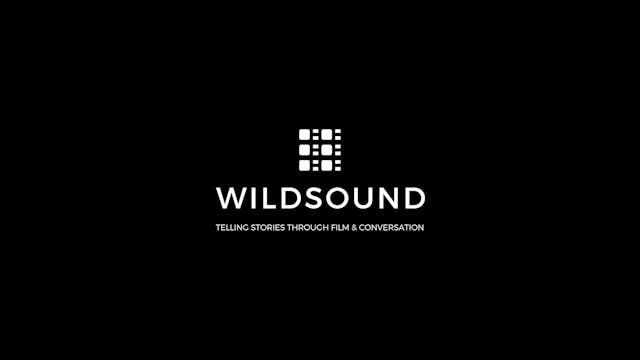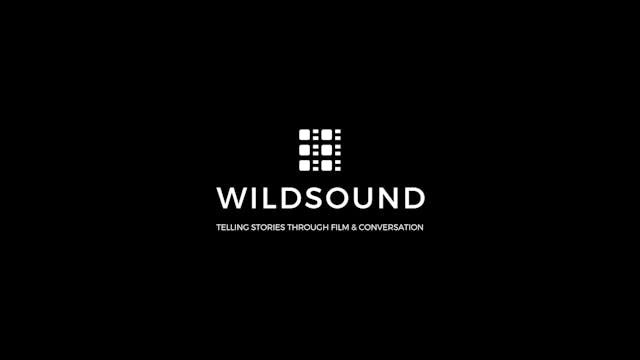SHORT Script Reading: Standing in Line, by Jules Corriere (writer interview)
SHORT SCREENPLAY READINGS
•
12m
Sam is standing in line at the grocery store with his grandson when an incident sparks a memory, and Sam is stunned as he watches the Food Lion transform into the haunting landscape of Auschwitz he escaped seventy years ago.
CAST LIST:
Narrator: Hannah Ehman
Sam: Sean Ballantyne
Buddy/Mr. Lockekt: Steve Rizzo
David/Mr. Elby: Allan Michael
Child/Intercom Voice/Cashier & 1: Kyana Teresa
Writer Statement
My father served in the military and was also an archaeologist. Wherever he was stationed, he always found his way to historic sites in the area, and I always found myself in the middle of one of his adventures, digging in the dirt for clues about humanity. My father never simply pulled an object out of the ground. Each piece had a story and a reason for being there. The artifacts that didn’t immediately have a story were the best. These mysteries required the team to dig deeper for understanding, until the full story unfolded about the person it belonged to, the history of how that person got there, and perhaps, why she disappeared. When all the pieces were assembled, a fuller picture of a people and a time emerge, and we come to understand it better.
As a young adult in the 1990s, I met a playwright and director of a new form of theater emerging across the country, which utilized true community stories. Around these artifacts, an original script is written. These plays engage not trained actors, but community members who carry these stories in their bones. What these two artists were doing felt so familiar. I began working with Jo Carson and Richard Owen Geer, first as an apprentice in this style of writing and directing, and then as a partner and playwright with the company. The experience led me to develop over forty original stage plays over the last twenty years, all based on true oral stories I collected in town large and small around the country, and even abroad. I also created a creative non-fiction radio show airing on the local NPR station (WETS) now in its eleventh season.
As a community performance writer, I find myself still searching for clues about humanity. Now, instead of digging in dirt, I excavate stories from living people. Extraordinary stories of ordinary lives form the basis of my performative pieces, either as stage plays or radio scripts, as a way for the community to examine its many different facets. Community members get to stand in each other’s places, reflect on their shared humanity, celebrate their diversity, understand each other’s hardships, and perhaps discover hidden stories about their neighbors and family, all to build a stronger community now. This is necessary art. I like to imagine the possibilities if we are able to work together in better understanding while we are all still alive, instead of waiting for others to discover what our potential might have been, when we are nothing more than bits and pieces dug up by someone in a future generation.
Get to know the writer:
1. What is your screenplay about?
"Standing in Line" tells the story of Sam, who we meet standing in line at a grocery store with his grandson. An incident sparks a memory, and Sam is stunned as he watches the Food Lion transform into the haunting landscape of Auschwitz he escaped seventy years ago.
2. What genres does your screenplay fall under?
This short screenplay falls under the genres of drama and history, and could also be considered psychological.
3. Why should this screenplay be made into a movie?
Standing in Line should be made into a movie because Sam's story as a survivor is an important reminder of what happens to us, individually and collectively, when we begin to see "the other" or people of difference as less-than. It importantly reminds us of how the horrors of Sam's experience began in simple, ordinary ways, such as being asked to register, to carry a special document, to be removed to a new neighborhood, etc. His experiences are evocative of situations occurring here in the United States and other countries in Europe. While Sam's story of surviving Auschwitz 70 years ago may feel like history, his circumstance is sadly cyclical. But cycles can be broken through education and information. Compelling storytelling has the power to do this. Through Sam's story, we meet and get to know a person who ceases to be a number or a statistic. Setting the film in an ordinary world that we've all been in puts us momentarily in Sam's shoes, where we see how monstrous actions become ordinary policy. We empathize with Sam as we come to understand his story more fully. It is also the story of a person who finds his own agency in a situation created to rob him of it. It's something we can all learn from, and draw strength from, no matter our background or ethnicity.
4. How would you describe this script in two words?
Necessary storytelling.
5. What movie have you seen the most times in your life?
This is a tricky question. There are so many movies I've watched over and over, but these movies have changed as I've matured. I was also a strange kid, and enjoyed watching older films on AMC with my dad when I was growing up. Casablanca was a favorite, and The Inn of the Sixth Happiness. For fun, I like to watch movies that make me feel good, and those have been Wizard of Oz, Star Wars, Sound of Music, Harry Potter. But there are some movies that I watched ONLY once, but they continue to affect me and stay with me, as if I've seen it a hundred times, because they've never stopped making me think. They are movies I needed to see, and sometimes wish I hadn't seen, but I wouldn't go back in time and not see them. These films affected my own work as a storyteller: Apocalypse Now (original), Cidade de Deus (based on an area where I lived and worked in Brazil), Sophie's Choice, Schindler's List, La Vita Bella. There is an authentic rawness to these stories that deepened my understanding of history and evoked questions about humanity, about good and bad, about finding one's agency in impossible situations. These movies so rich and so difficult that seeing them once is already nearly too much, but not quite, and I can recall them as if I've seen them 100 times.
6. How long have you been working on this screenplay?
I worked on this screenplay over a two-week period during my summer residency at Harvard while working on my Masters in Creative Writing and Literature. However, this short film is based on a small scene from a larger stage play that was produced several years ago in Newport News, Virginia. The scene was one of two dozen other vignettes that comprised the play. I always felt like there was a bigger audience for this story. While in college, I realized film would be a way to do this. The screenplay allows for so much more world-building (and blurring) than the theater piece. My dream would be to have Judd Hirsch play the role of Sam.
7. How many stories have you written?
I've been a playwright for over twenty years, but Standing in Line is my first screenplay. I've had over forty plays produced around the country, and have also produced in London, Edinburgh, and Rio de Janeiro. I also write a monthly, one-hour radio show based on local stories from the Southern Appalachian region, which is now in its eleventh season, so over 120 episodes of that. It's on our regional NPR station, and is a podcast: StoryTown, with over 40 episodes currently up. It's hard to say how many stories I've written because I think I've been writing stories since I learned how to hold a crayon.
8. What is your favorite song? (Or, what song have you listened to the
most times in your life?)
This one is easy. The Safety Dance!
9. What obstacles did you face to finish this screenplay?
While working on this screenplay, I had just lost my 23 year old daughter-in-law the month before. Completing the work while experiencing this huge grief was such a challenge, and continues to be. It's been a very tender time in my family. But a writer writes. Sometimes I escape in my writing, other times I find my way back. It's an obstacle I'm still dealing with, and will continue to deal with throughout my life, and I'm sure it will influence my writing from this point forward. How could it not?
10. Apart from writing, what else are you passionate about?
I find great joy in cooking recipes from different parts of the world, as well as creating my own recipes. Sometimes I'll look at a recipe for something like Okonomiyaki from Japan (my stepson is Japanese), and I'll spend an hour at the local market getting every authentic ingredient the recipe demands, while other times I like to throw open my pantry and play the game, "What can I make with the ingredients on hand?" Cooking is such a creative art. Some see it as a chore, but I just love how cooking and serving food brings people together. (And of course, wherever people gather, stories get told!)
11. You entered your screenplay via FilmFreeway. What has been your
experiences working with the submission platform site?
FilmFreeway has been an incredibly user-friendly site. I enjoy the ease of submitting, and having the ability to go on my page and look at the dates for announcements. I was so excited to see "Selected" for this festival!
12. What influenced you to enter the festival? What were your feelings
on the initial feedback you received?
I entered the Diversity Festival because I felt like this festival in particular would be interested in the subject matter.It isn't a mainstream story. I also found the feedback so helpful. I have since taken the feedback from this festival and made changes to the original screenplay, so hopefully it reads even stronger. This is my first screenplay, so the thoughtful and careful notes allowed me to see not only how to strengthen this screenplay, but how I can strengthen the other pieces I'm currently working on.
Up Next in SHORT SCREENPLAY READINGS
-
Thingamajigs — An American Fairy Tale...
As an act of proxy revenge, a little girl is given a book filled with unexpectedly vivid illustrations.
CAST LIST:
Narrator: Val Cole
Nora/Donkey/Mrs. Brown: Hannah Ehman
Jane/Monkey: Elizabeth Rose Morriss
Book Agent: Steve Rizzo
Clown/Grizzly: Sean BallantyneGet to know the writer:
... -
SHORT Screenplay Reading: Anger Manag...
Anger Management is a comedy in which an angry man seeking treatment finds an unusual cure for his problem.
CAST LIST:
Narrator: Elizabeth Rose Morriss
Man with Magazine: Sean Ballantyne
Restless Man: Steve Rizzo
Receptionist: Kyana Teresa
Ireland: Allan Michael -
COMEDY 1st Scene Reading: Wintucky Hi...
Get to know the writer:
1. What is your screenplay about?
Three down-on-their-luck friends discover an old high-school rival, now the corrupt mayor of their town, and his army of violent seniors are running an illicit weed growing business; an operation they had been arrested for years before....


